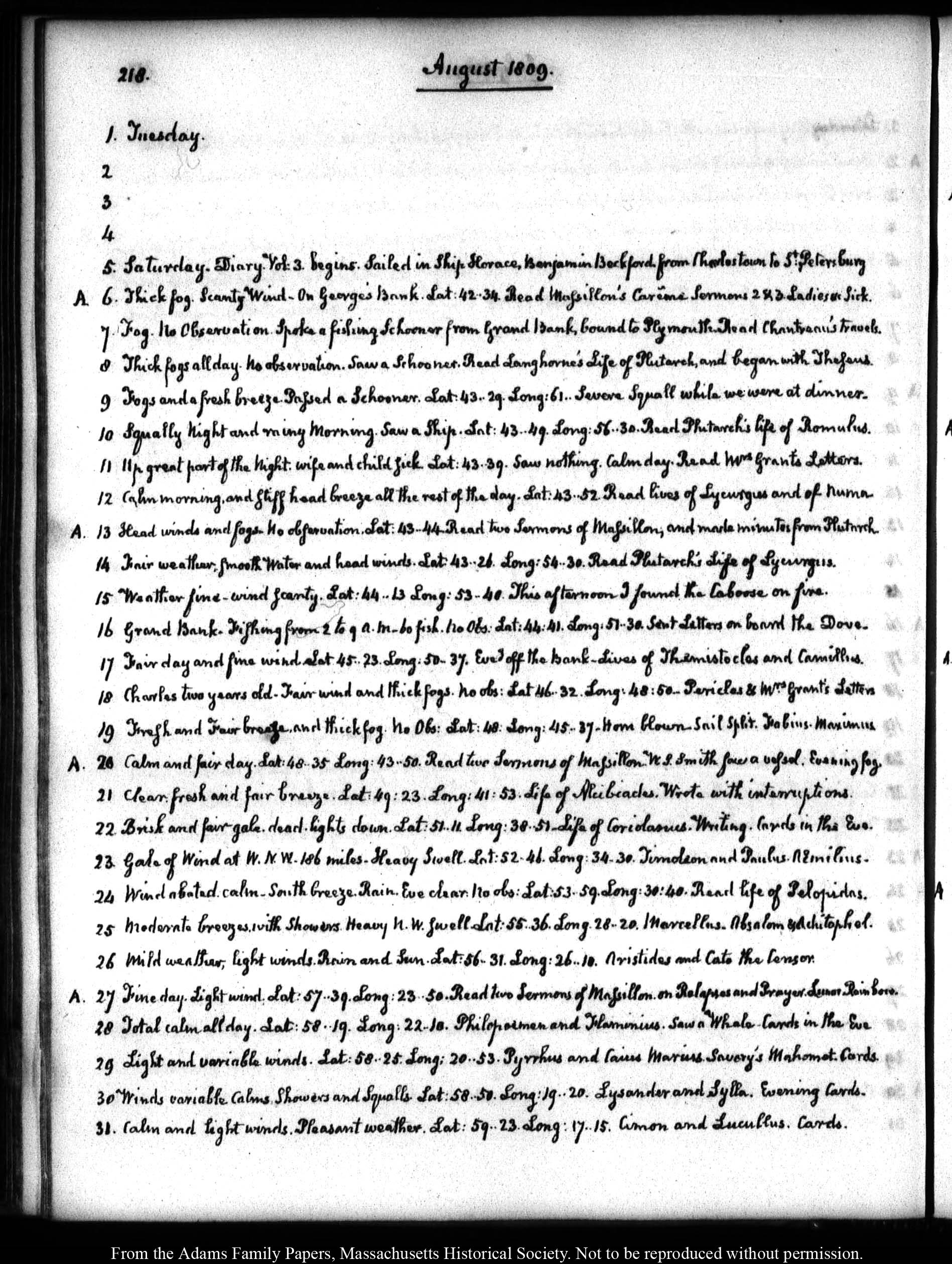 Mr. Adams, who was sailing to Russia to serve as President James Madison's minister plenipotentiary to that nation, spent his time that day reading about Timoleon and Paulus Aemilius (in Plutarch, I think), according to his personal one-line-a-day log.
Mr. Adams, who was sailing to Russia to serve as President James Madison's minister plenipotentiary to that nation, spent his time that day reading about Timoleon and Paulus Aemilius (in Plutarch, I think), according to his personal one-line-a-day log.He gave the ship's position as 52 degrees, 46 minutes north latitude and 34 degrees, 30 minutes west longitude, which put them almost exactly halfway between Newfoundland and Ireland, in the north Atlantic.
Now, two centuries later, the folks at the Massachusetts Historical Society have started a project to publish Adams' log in the closest thing to a modern "line-a-day" log -- twitter. They've begun posting each day's entry to a John Quincy Adams twitter account: JQAdams_MHS.
View John Quincy Adams in a larger map
And they have geo-published those entries, using Adams' recording of the ship's position. Now we have both a regular text update of Adams' days, and we have a daily chart showing his location and basic log entries.
That is in addition to his full diaries from the journey, which are also available, and which contain more detail and thoughts. In fact, the Massachusetts Historical Society has 51 volumes of diaries that President Adams kept throughout his life; he was one of those diarists who left a rich legacy for historians and biographers.
Of course I could draw the comparison between the 19th centuries diarists and 21st century bloggers. But I think that, more than any one technique or technology, it is the practice of daily recording of data, location, thoughts, and activities, that is of value here.
Not every diarist or blogger who writes down their thoughts each day will turn out to be a leader that future generations will want to study. But we do hope that every leader will keep such a record for the future. And we don't know ahead of time who those folks will be. So, it is, I think, a good thing to have at least some part of the population in the habit, just in case one of them turns out to be someone special some day.
No comments:
Post a Comment
Note: Only a member of this blog may post a comment.